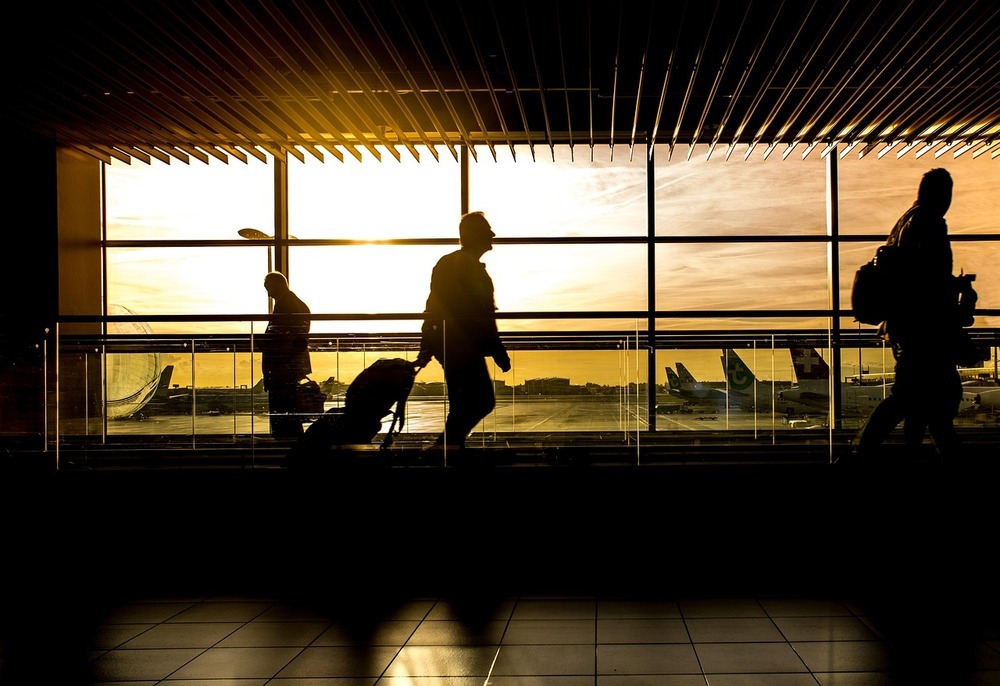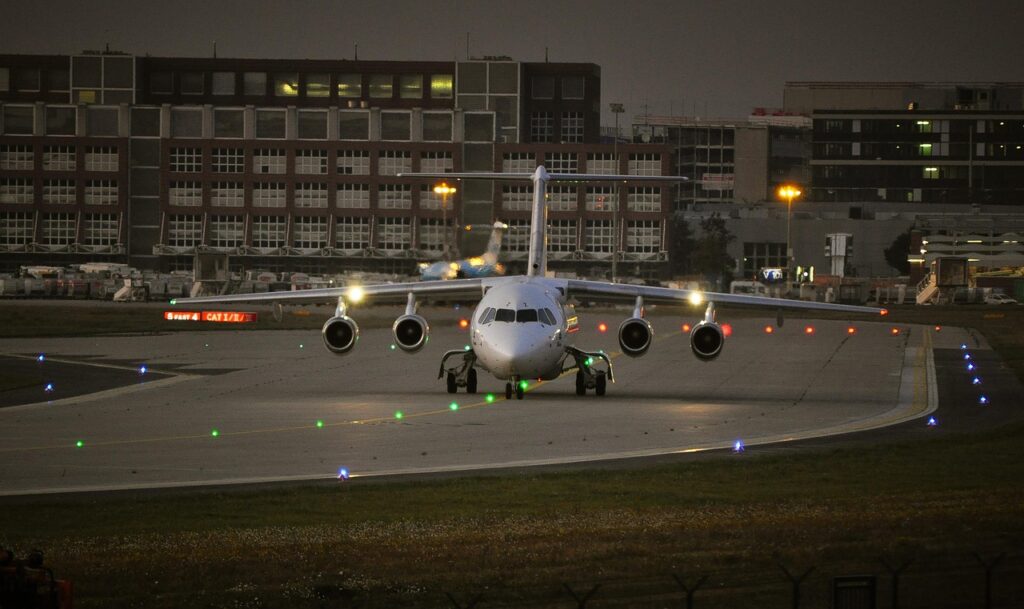Being denied boarding can be one of the most frustrating and stressful experiences a traveller can face. Whether it’s overbooking, document issues, or safety concerns, airlines sometimes refuse passengers at the gate, often leaving them feeling powerless and confused.
In this guide, we’ll break down exactly why airlines can deny you boarding, your rights in these situations, and what you can do to protect yourself. From understanding the contract of carriage to knowing how to claim compensation, we’ll equip you with the knowledge you need to handle denied boarding confidently and ensure you’re not left stranded.

Common Reasons You Can Be Legally Denied Boarding
Airlines possess the authority to legally refuse boarding to passengers in certain circumstances, as stipulated within their respective contracts of carriage. Let’s examine some of the most prevalent reasons for denied boarding.
Issues with Overbooking
Airlines frequently employ overbooking as a strategy, selling more tickets than there are available seats on the plane. This policy is meant to counteract the financial loss from people who miss their flight, which happens at an industry average of around 5% to 15%, depending on the route and season.
According to the Bureau of Transportation Statistics, involuntary denied boardings occur to about 1% of passengers every year, which translates to up to 50,000 people a year in the United States alone. In such circumstances—when a flight is overbooked—airlines will first ask passengers to voluntarily relinquish their seat in exchange for a reward, such as a travel voucher, cash incentive, or rebooking on a later flight.
If not enough volunteers step up, the airline has to involuntarily deny boarding to some of those passengers, usually picking the ones who checked in last or don’t have a pre-assigned seat. Frustrating as this is for affected travellers, that’s how the practice is supposed to work, and there are policies—like U.S. DOT rules—in place to govern the practice and require that airlines provide denied boarding compensation and assistance.
These rules guarantee that passengers who are involuntarily rerouted from flights are compensated for their troubles, meaning travellers who know their rights and understand the particulars of airline policies are at an advantage.
TIP: If you’re denied boarding due to overbooking, never accept the first compensation offer—airlines often increase the payout if enough passengers refuse.
Unruly Behavior (Being Intoxicated or Under the Influence of Illegal Drugs)
In fact, airlines have the responsibility and power to refuse to board any passenger acting inappropriately — a policy that, when enforced, goes a long way towards ensuring the safety and security of everyone on board. Simply put, a guilty mind is all you need.
Unruly behaviour covers a variety of actions, but it most commonly means being visibly intoxicated or under the influence of illegal substances. Incidents of such behaviour risk turning into disruptive altercations or can hinder the crew’s ability to handle an emergency situation effectively. An inebriated traveller, for example, could mistake orders for each other at a pivotal moment or start arguments with other travellers or crew members.
To help reduce these risks, members of the flight staff are trained to recognise signs of intoxication or drug influence before any passengers board the aircraft. Those whose activities raise even the potential for being a threat to the peace and good order of the flight are not allowed to board under procedures that are both fair and legally defensible.
This zero-tolerance approach goes a long way in helping to ensure the safety and security of all passengers on board.
Invalid or Inappropriate Travel Documents
However, on international flights, passengers must possess valid and suitable travel documents. This means a current passport, and the right visas or transit permits, where needed, for their final destination. Airlines must check these documents prior to boarding, lest they risk costly fines and logistical headaches for the carrier by not complying to international travel regulations.
Passengers who do not provide the required papers at the airport will be barred from boarding their flight. These comprehensive checks help confirm that each and every traveller meets the necessary entry requirements of the destination country, with no problems at the other end. Travelers need to make sure their documents are valid and suitable for their itinerary well in advance of their travel date.
Part of airlines’ responsibility to maintain international travel standards also includes using trained staff to identify any forged documents. This ensures security for both the countries and the travelers against any consequences of invalid travel documents.
TIP: Check your passport expiration date and visa requirements at least a month before travel—some countries require passports to be valid for six months beyond your arrival date.
Health and Safety Concerns
All flights must be conducted with safe and secure practices. This includes the power to refuse boarding to anyone who might pose a health or safety risk. Determinations in such cases are made based on whether a passenger’s medical condition or behaviour could put themselves, other passengers, or crew members at risk.
General considerations for the assessment could include the risk of a medical emergency occurring in-flight that cannot be adequately addressed using the limited medical resources on board or via a 24-hour medical support centre. Airlines are prepared to accommodate minor health problems but will refuse individuals if they have more serious conditions that require specialised medical care or which may deteriorate and lead to a serious illness during the flight.
Airlines also have to consider the overall safety of the flight, including the risk from behaviours that may cause a disturbance or pose a threat while in the air. This measure is in place to keep everyone safe and to ensure that the flight proceeds smoothly without unexpected interruptions.
In such instances, the decision to refuse boarding is never a trivial matter and involves a thorough assessment of the possible risks relative to the rights and needs of the passenger in question. In most scenarios, airlines aim to provide regulatory-compliant, fair, and reasonable accommodations and alternatives to passengers who are affected.
Late Check-In

Airlines enforce specific check-in deadlines to keep flights departing on schedule. Failing to meet these deadlines can lead to denied boarding, as late check-ins can delay the flight and disrupt airport traffic flow.
These deadlines ensure passengers are processed, and their luggage is handled in time for the flight, particularly for international travel which involves more rigorous security checks. Knowing how early you should get to the airport is key to avoiding unnecessary stress, as it allows ample time for check-in, security, and potential delays. To avoid complications and ensure a smooth journey, passengers should plan to arrive at the airport well in advance of these deadlines.
TIP: Many airlines close boarding 15-30 minutes before departure, even if security took longer than expected. Always arrive at the gate early to avoid last-minute surprises.
Attempting to Interfere with Crew Duties
Airlines have the right to refuse boarding to any passenger who tries to disrupt the duties performed by the flight crew. Such interference can create significant safety and security risks on board the aircraft. The crew bears the primary responsibilities of ensuring the safety of all passengers, managing the flight, and maintaining order. The safety of this support system is crucial to protecting the operation of the flight, and any menacing actions towards these duties can jeopardise the safety procedures and overall system of the flight.
Interference might include attempting to gain entry into unauthorised areas on an aircraft, failing to follow crew directions during safety briefings or emergencies, or acting in ways that distract the crew from focusing on job-related duties.
Airlines enforce these rules strictly, governed by aviation regulations that prioritise the safety of the flight over the personal conduct of individual passengers. Passengers play a crucial role in ensuring a smooth and secure journey, and being aware of these boundaries can significantly enhance both the travel experience and the overall effectiveness of airport operations.
What Is a Contract of Carriage?
When you buy a ticket for a passenger flight, you are entering into a legal agreement known as the “contract of carriage” with the airline. This document outlines the airline’s terms, conditions, and policies, including the specific circumstances under which they reserve the right to deny boarding, even when you’re ready to board your flight. Understanding this contract is crucial, especially in cases involving denied boarding or when dealing with the implications of a missed connecting flight. Both scenarios can be complex, but knowing your rights as outlined in the contract can help you navigate the situation more effectively.
Of course, each airline’s contract of carriage can vary. An airline can deny a passenger transportation based on the terms of its own contract, according to the U.S. Department of Transportation, as long as the denial is not discriminatory.
Legal Aspects of Denied Boarding
This can differ widely from country to country and from jurisdiction to jurisdiction. However, there are usually some standard responsibilities that airlines are required to follow whenever they refuse a passenger boarding.
According to airlines, this often means providing compensation to the individual or rebooking a flight for that passenger. Travellers can also explore the applicable local and diplomatic regulations, including EU Regulation 261, to understand their rights in case they are denied boarding in instances of overbooking.
What to Do If You Are Denied Boarding
| Step | Action | Why It Helps |
| Stay Calm & Ask Why | Politely ask the airline why you were denied boarding | Understanding the reason helps you know your rights |
| Check Compensation Rules | Look up EU261 or DOT regulations to see if you qualify | You may be entitled to cash compensation |
| Request Rebooking | Ask to be rebooked on the next available flight | Ensures you get to your destination as soon as possible |
| Keep All Documentation | Save boarding passes, emails, and receipts | Useful if you need to file a claim later |
| File a Formal Complaint | If necessary, submit a complaint with the airline | Strengthens your case for compensation |
Always ask for a written statement if you’re denied boarding—this can be useful if you need to file a compensation claim later.
FAQ
Failing to board a scheduled flight without prior notice can have serious consequences. Airlines may cancel the rest of the passenger’s itinerary, including connections and return flights. Passengers may also forfeit the value of their ticket or face penalties.
Passengers denied boarding due to overbooking are generally entitled to compensation, often governed by regulations like the U.S. Department of Transportation’s rules. Passengers should understand their rights and advocate for the compensation they are owed.
To avoid denied boarding, passengers must have valid passports, visas (if required), and any other documentation necessary for their final destination. Researching and complying with entry requirements is crucial.
Proactively disclosing medical conditions or potential health issues to the airline can help prevent denied boarding on safety grounds. Passengers should also avoid displaying symptoms of infectious diseases.
